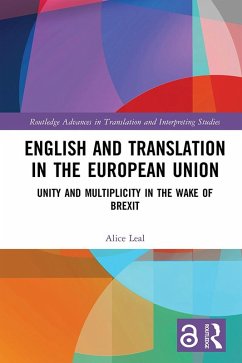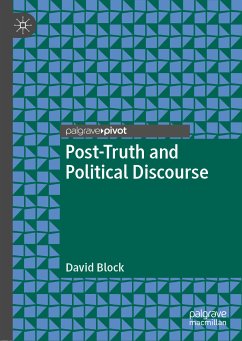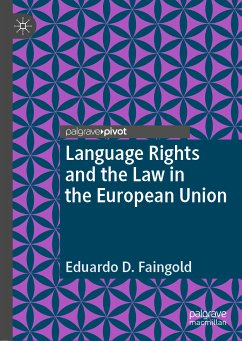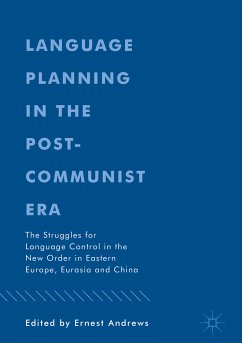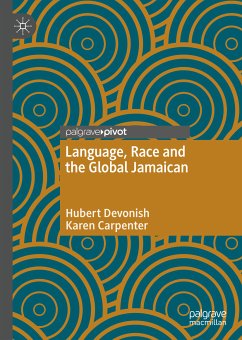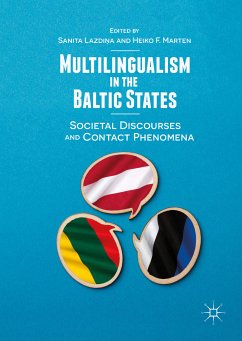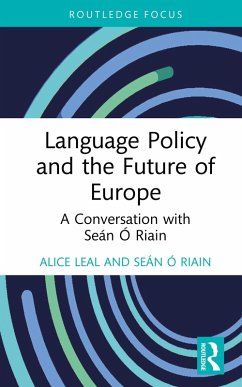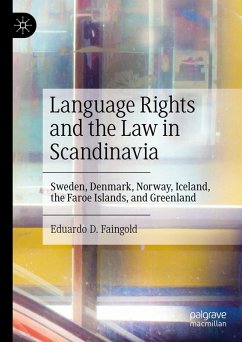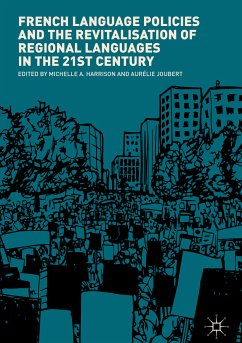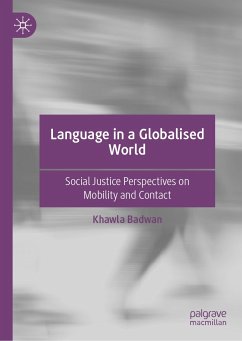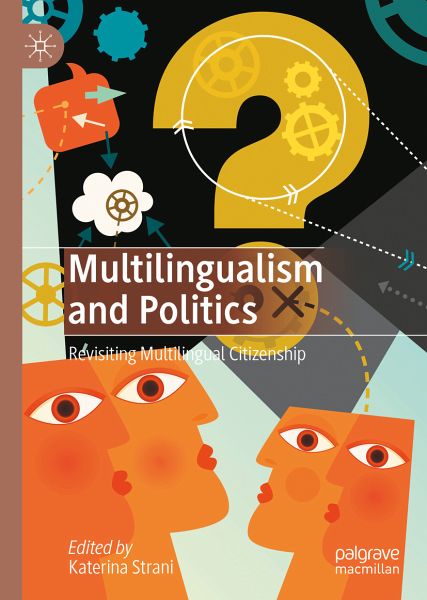
Multilingualism and Politics (eBook, PDF)
Revisiting Multilingual Citizenship
Redaktion: Strani, Katerina
Versandkostenfrei!
Sofort per Download lieferbar
112,95 €
inkl. MwSt.
Weitere Ausgaben:

PAYBACK Punkte
56 °P sammeln!
This edited book makes a significant contribution to the relatively under-explored field of multilingualism and politics, approaching the topic from two key perspectives: multilingualism in politics, and the politics of multilingualism. Through the lens of case studies from around the world, the authors in this volume combine theoretical and empirical insights to examine the inter-relation between multilingualism and politics in different spheres and contexts, including minority language policy, national identity, the translation of political debates and discourse, and the use of multiple, oft...
This edited book makes a significant contribution to the relatively under-explored field of multilingualism and politics, approaching the topic from two key perspectives: multilingualism in politics, and the politics of multilingualism. Through the lens of case studies from around the world, the authors in this volume combine theoretical and empirical insights to examine the inter-relation between multilingualism and politics in different spheres and contexts, including minority language policy, national identity, the translation of political debates and discourse, and the use of multiple, often competing languages in educational settings. This book will be of interest to students and scholars in the fields of politics, sociology, sociolinguistics, language policy, and translation and interpreting studies.
Dieser Download kann aus rechtlichen Gründen nur mit Rechnungsadresse in A, B, BG, CY, CZ, D, DK, EW, E, FIN, F, GR, HR, H, IRL, I, LT, L, LR, M, NL, PL, P, R, S, SLO, SK ausgeliefert werden.



